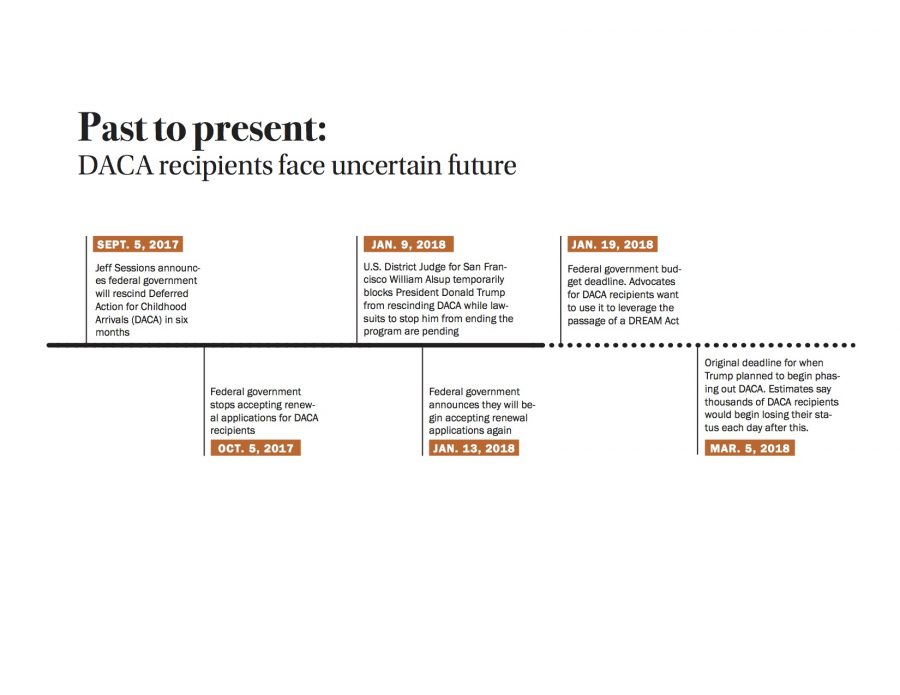The Department of Justice announced Tuesday it will ask the U.S. Supreme Court to review last week’s federal injunction that temporarily blocked President Donald Trump’s administration from rescinding Deferred Action for Childhood Arrivals, or DACA.
U.S. District Judge William Alsup issued the injunction on Jan. 9 stating that the Obama-era protections for hundreds of thousands of undocumented immigrants brought to the U.S. illegally as minors must remain in place while lawsuits against Trump’s decision are pending. Officials are not, however, required to accept new applications for the program. If the Supreme Court takes on the case, the Department of Justice will be bypassing the U.S. Ninth Circuit Court of Appeals, which would traditionally handle the next round of the appeals process for Alsup’s decision. For now, the Department has filed an appeal of the injunction with the Ninth Circuit.
“It defies both law and common sense for DACA … to somehow be mandated nationwide by a single district court in San Francisco,” U.S. Attorney General Jeff Sessions said in a press release Tuesday. “We are now taking the rare step of requesting direct review on the merits of this injunction by the Supreme Court so that this issue may be resolved quickly and fairly for all the parties involved.”
The announcement came three days after the federal government reported it would begin accepting renewal applications for DACA once again as ordered by Alsup.
Several groups, including the state of California, sued the Trump administration following his decision to end DACA.
Senate Minority Leader Chuck Schumer and other congressional Democrats said they still plan to move forward with passing a legislative version of DACA.
“Let me be VERY clear: This ruling last night in no way diminishes the urgency of resolving the DACA issue,” Schumer, D-New York, said in a tweet on Jan. 10.
Elissa Steglich, an immigration law professor at UT, said the injunction was welcome news, but DACA recipients should still be wary as the ruling is by no means a permanent solution.
“(The injunction) echoes what many legal scholars and attorneys were saying about the initial decision to terminate (DACA) from the beginning,” Steglich said.
When Sessions announced in September that DACA would be rescinded, he said the decision came because the program was an overstep of power by the executive branch. In the ruling, Alsup wrote that if this was not the case, then DACA has been the “victim of a colossal blunder.”
An uncertain future
During a meeting with members of Congress just hours before Alsup’s decision, Trump expressed interest in a wide-reaching immigration deal to offer the millions of undocumented immigrants in the U.S., not just Dreamers a path to citizenship, according to The New York Times.
Two days after Alsup’s decision, during another meeting with members of Congress, Trump reportedly asked why the U.S. would want to allow in immigrants from “shithole countries,” such as Haiti, El Salvador and African nations. This inflamed already tense relations between Trump and the Democrats as they attempted to finalize a deal to replace DACA.
Then, on Jan. 14, Trump tweeted that DACA is “probably dead.” The tweet came after several days of heightened tensions resulting from the president’s vulgar comment.
Democrats have threatened a government shutdown if a compromise to help DACA recipients is not reached by Jan. 19, when the federal budget expires.















